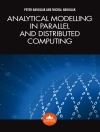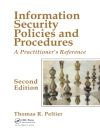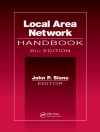This book features a selection of revised and extended research articles written by prominent researchers who participated in the 26th World Congress on Engineering and Computer Science (WCECS 2018), held in San Francisco, USA, on October 23–25, 2018.
Topics covered include engineering mathematics, electrical engineering, communications systems, computer science, chemical engineering, systems engineering, manufacturing engineering and industrial applications. With contributions carefully chosen to represent the most cutting-edge research presented at the conference and highlighting the state of the art in engineering technologies and the physical sciences and their applications, the book is a valuable reference resource for graduate students and researchers working in these fields.
สารบัญ
Selected topics in chemical engineering.- Selected topics in bioengineering.- Selected topics in internet engineering.- Selected topics in image engineering.- Selected topics in electrical engineering.- Selected topics in systems engineering.- Selected topics in industrial applications
เกี่ยวกับผู้แต่ง
Dr. Sio-Iong Ao completed his doctoral research at The University of Hong Kong and postdoctoral research at the University of Oxford and Harvard University. He is a former Visiting Professor at Cranfield University, UK, and the University of Wyoming, USA.
Professor Haeng-Kon Kim is Vice President of Research and Information, Dean of the Engineering College and a Professor at the Department of Computer Engineering, Catholic University of Daegu, Korea. He was a researcher staff at Bell Lab. and the NASA center in the USA, and taught at Central Michigan University during his sabbatical (December 2000 to February 2002). Professor Mahyar Amouzegar, Provost and Senior Vice President for Academic Affairs, is the Chief Academic Officer at the University of New Orleans. He previously held the position of Dean of the College of Engineering at Cal Poly Pomona, where he oversaw more than 300 faculty and staff, 12 accredited programs and more than 5, 000 students.












